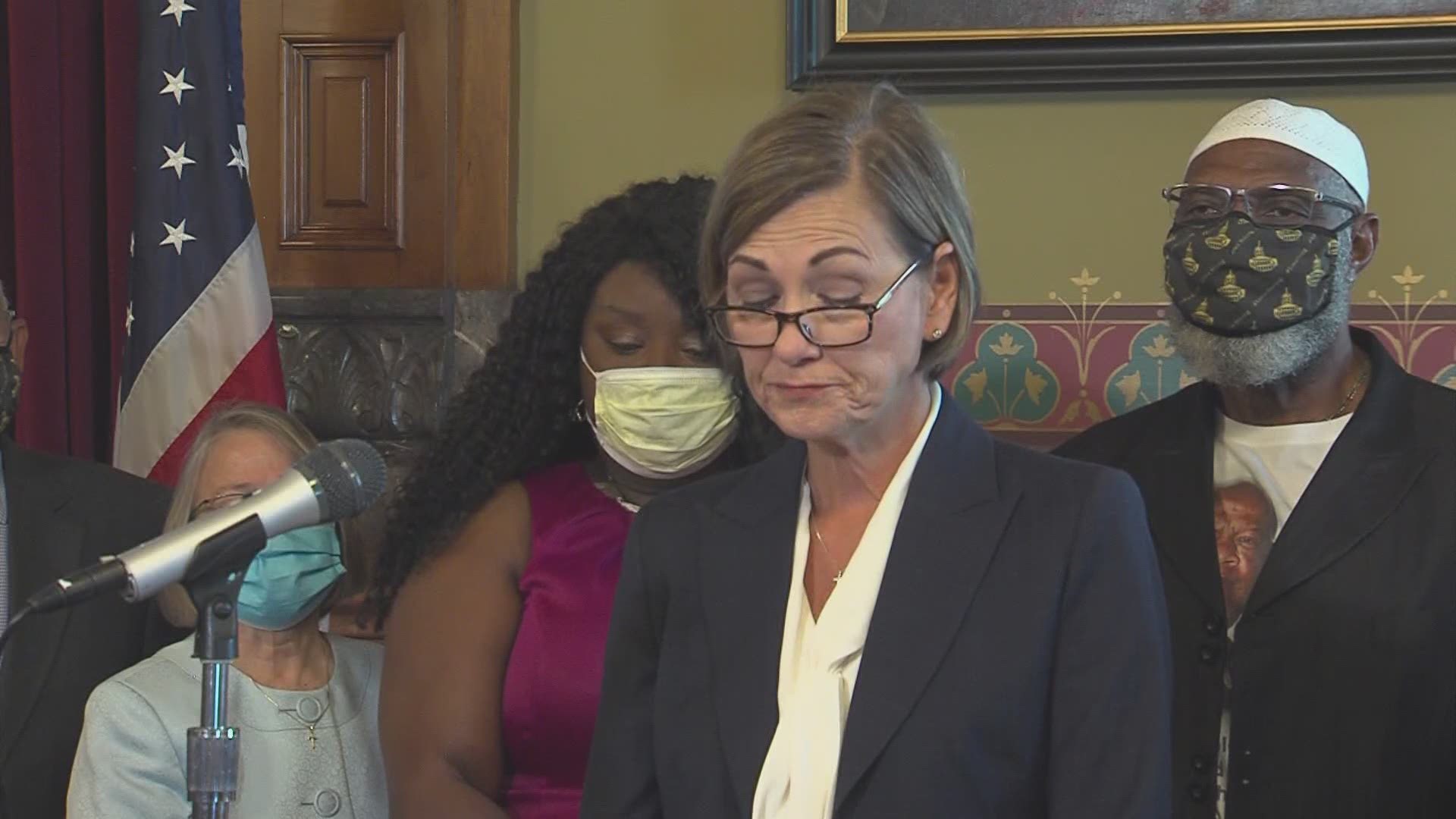DES MOINES, Iowa — Gov. Kim Reynolds signed an executive order Wednesday morning restoring voting rights to most felons once they serve their time.
Prior to this executive order, Iowa was the only state in the nation with a lifetime ban barring felons from voting. It's not just a law that bars felons from voting in Iowa, but a part of the Iowa constitution.
Reynolds said she hopes language in this order will last long enough for a constitutional amendment to get passed.
"Quite simply, when someone serves their sentence, they paid their price our justice system has set for their crime," Reynolds said. "They should have the right to vote restored automatically. Plain and simple."
The order is one of the demands listed by the Black Lives Matter (BLM) group in Des Moines, who said they're fighting to put an end to systemic racism.
BLM pressured the governor's administration to pass an order so felons are able to vote by this November. Their deadline for the governor was July 4th, however Reynolds did live up to her promise by signing it before Election Day.
In the past, Reynolds has pushed for just a constitutional amendment.
During her Condition of the State Address in January 2019, Reynolds made it clear that she wanted that.
"I don't believe that voting rights should be forever stripped, and I don't believe restoration should be in the hands of a single person," Reynolds said in 2019.
After numerous negotiations, the governor agreed to move ahead with an executive order so people can participate in the upcoming election.
Restitution will not be needed to be paid back before rights are restored.
People convicted of murder aren't eligible for automatic restoration under the order signed Wednesday. They must still apply to the governor's office.
How did we get here?
Iowa felons have had their voting rights restored before.
In 2005, then-Gov. Tom Vilsack (D) signed an executive order allowing him to automatically restore voting rights to felons once they serve their sentence.
The order was rescinded when Terry Branstad (R) took office in 2011.
After that, felons had to fill out an application and send it to the governor's office. Rights were restored on a case-by-case scenario.
Reynolds has approved nearly 750 applications since January.
The main difference between the two orders is that Reynolds' order commits to restoring rights every single day.
What happens next?
The order goes into effect Thursday, but Reynolds and other local leaders said there's still a long way to go in the fight against systemic racism.
"An executive order is, at best, a temporary solution," Reynolds said. "It can be changed with the stroke of the pen by the next governor, which is not good enough."
State Representative Ako Abdul-Samad, D- Des Moines, stood alongside others as Reynolds signed the order. Shortly after the signing, he stepped out to talk to media about what's next.
"We have to understand that when we talk about these first steps from the legislation that was passed to the executive order, these don't mean anything unless we have the real conversations and get to the root cause of why we have to have an executive order," Abdul-Samad said.
The Rev. Rob Johnson agreed with Abdul-Samad.
"We should have had this moment a long time ago," Johnson said.
"I'm excited that it did happen, but I'm also still preparing myself for the work ahead of us because now we have to get people registered to vote. Now we have to get out and educate people on absentee ballots and getting people to the polls. So now the hard work begins."
Johnson said this order is just step one in the fight against systemic racism.
The next steps?
"Health care, the wealth gap, economics," Johnson said. "When we have to talk about education and making sure that people have that right."
Decriminalizing marijuana was also noted as an area to address.
Iowa Secretary of State Paul Pate is set to start working with the governor's office to make this executive order work. Pate's office sent the following statement via email:
“My office is prepared to assist Governor Reynolds with implementing her Executive Order. Working with the Governor’s Office, the Iowa Department of Corrections and the Judicial Branch, we will ensure everyone who is eligible to register to vote is able to do so.
We are in the final stages of a manual review of the 90,000 files in the felon database to ensure their accuracy. The project is months ahead of schedule and will be complete well in advance of the general election.”
Read the full Executive Order below
Download the We Are Iowa app or subscribe to Local 5's "5 Things to Know" email newsletter.

